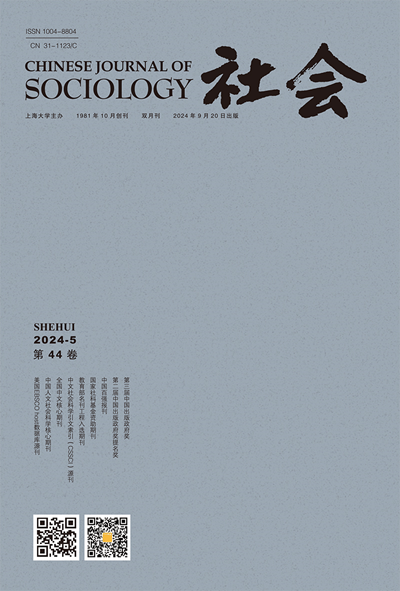选择性忽视:中国农村儿童保健利用的性别差异
IF 1.8
4区 社会学
Q2 SOCIOLOGY
引用次数: 2
摘要
本研究研究了儿童的性别是否会影响家庭成年人对其疾病的认知以及为其寻求治疗的模式,目的是了解未成年女孩(15岁以下)在中国农村家庭的医疗保健分配中受到多大程度的歧视。利用2014年的中国家庭小组研究(CFPS),我们发现中国农村家庭确实向男孩分配了比女孩更多的医疗资源。性别差异主要存在于儿童的住院率和医疗支出方面。随着年龄的增长,女孩的处境尤其不利。他们还面临着兄弟姐妹竞争的额外问题,这导致生病的女孩在有同性兄弟姐妹时不太可能被送往医院。这些结果表明,由于重男轻女,中国农村患病女孩可能无法获得足够的治疗性医疗保健。这不仅是对女童福祉的威胁,也是中国人口性别比例失衡的潜在原因。本文章由计算机程序翻译,如有差异,请以英文原文为准。
Selective neglect: Gender disparities in children’s healthcare utilization in rural China
This research studies whether children’s gender influences household adults’ perceptions of their illnesses and the pattern of seeking medical treatments for them, the aim of which is to understand to what extent minor girls (under 15) are discriminated against in Chinese rural households’ allocation of curative healthcare. Using the 2014 wave of China Family Panel Studies (CFPS), we find that households in rural China do allocate more medical resources to boys than girls. Gender differences mainly exist in children’s hospitalization rates and medical expenditures. Girls are especially disadvantaged as they grow older. They also face an added problem of sibling rivalry that leads to sick girls being less likely to be taken to a hospital when they have siblings of the same gender. These results suggest that sick girls in rural China may not be able to receive sufficient curative healthcare due to son preference. This is not only a threat to girls’ well-being, but also a potential cause of the imbalanced sex-ratio of the Chinese population.
求助全文
通过发布文献求助,成功后即可免费获取论文全文。
去求助
来源期刊

社会
Social Sciences-Social Sciences (all)
CiteScore
1.70
自引率
0.00%
发文量
6799
期刊介绍:
The Chinese Journal of Sociology is a peer reviewed, international journal with the following standards: 1. The purpose of the Journal is to publish (in the English language) articles, reviews and scholarly comment which have been judged worthy of publication by appropriate specialists and accepted by the University on studies relating to sociology. 2. The Journal will be international in the sense that it will seek, wherever possible, to publish material from authors with an international reputation and articles that are of interest to an international audience. 3. In pursuit of the above the journal shall: (i) draw on and include high quality work from the international community . The Journal shall include work representing the major areas of interest in sociology. (ii) avoid bias in favour of the interests of particular schools or directions of research or particular political or narrow disciplinary objectives to the exclusion of others; (iii) ensure that articles are written in a terminology and style which makes them intelligible, not merely within the context of a particular discipline or abstract mode, but across the domain of relevant disciplines.
 求助内容:
求助内容: 应助结果提醒方式:
应助结果提醒方式:


